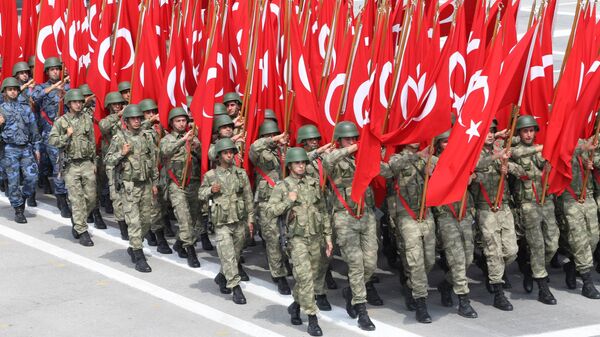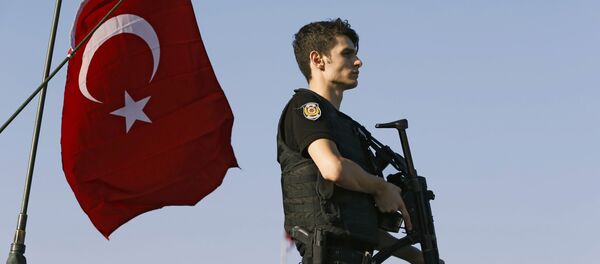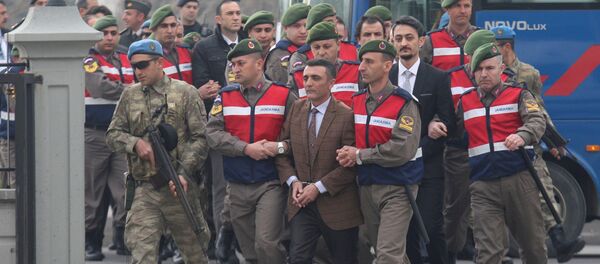Religion has been making its way back into Turkish life since 2002, when President Tayyip Erdogan founded the AK Party, thought to be a likely influence on the headscarf decision. The country is officially secular, although a majority of its citizens are Muslims, and for years headscarves were banned in universities and in civil service, but the bans were overturned by the AKP.
The scarves are to match the uniform, have no pattern, be worn under caps or berets, and cannot cover the face. Civilian personnel in the military were banned from wearing headscarves until November 2016.
While in power, Erdogan has rolled back much of the authority of a once-powerful Turkish military that helped to overthrow the militant government in 1997 and has carried out three coups in the country between 1960 and 1980.
A recent coup was attempted in July 2016, purportedly by a group of soldiers attempting to overthrow the government by commandeering helicopters, tanks and warplanes and attacking parliament. By the time the uprising was quelched, some 240 people were dead.
Reclusive Turkish-born cleric Fethullah Gulen was quickly blamed by Erdogan for inciting the coup. The US-based Gulen denies any involvement.
Islam was banned from Turkish public life after the fall of the Ottoman Empire in the 1920s. The country’s first president, Mustafa Kemal Ataturk, is considered to have established modern Turkey by ushering in secularism, promoted women’s rights, replacing Arabic with Latin script and encouraging Western styles of dress.
In late April 2016 parliament speaker Ismail Kahraman caused controversy when he proposed that a new constitution be adopted to drop all references to secularism.
Turkish media published videos of Kahraman saying, "For one thing, the new constitution should not have secularism," and that, "It needs to discuss religion… It should not be irreligious, this new constitution, it should be a religious constitution."
In April there will be a referendum on constitutional reform that, if passed, will expand presidential powers. The ruling AKP believes such a measure would maintain stability in the country, while opponents point out that it signals another step toward an authoritarian and theocratic regime.




